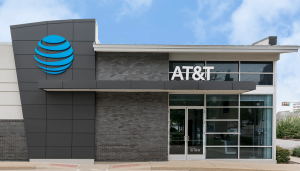Oculus Rift backers demand part of $2B acquisition
![]() Facebook CEO Mark Zuckerberg announced on his page that the company is acquiring Oculus VR, the startup virtual reality company that promised to rock the world of gamers.
Facebook CEO Mark Zuckerberg announced on his page that the company is acquiring Oculus VR, the startup virtual reality company that promised to rock the world of gamers.
In his post, Zuckerberg stated that the company’s mission is to build an open and connected world, and to that end its has focused heavily on web and mobile. But now, Faceboook feels it needs to focus on upcoming platforms too, such as virtual reality, which some people deem as the next big thing.
He pointed out the Oculus Rift headset is the perfect device to immerse yourself not only in games, but also the wider web. It could potentially be used for better movie viewing experience, or to teleport yourself into particular place even if you’re physically halfway across the globe.
“Oculus’ mission is to enable you to experience the impossible. Their technology opens up the possibility of completely new kinds of experiences,” Zuckerberg stated.
Gaming will still take precedent, but after that, Facebook plans on using the device for other purposes such as “enjoying a court side seat at a game, studying in a classroom of students and teachers all over the world or consulting with a doctor face-to-face — just by putting on goggles in your home.”
The acquisition is priced at $2 billion, cash and stocks. A small amount for Facebook considering the deal puts the company into the hardware business. Facebook has been software-focused since its inception, so it would be pretty interesting to see what it will do with something like Oculus.
Oculus VR was co-founded by Andrew Reisse (who was tragically killed in an accident in June 2013), Brendan Iribe, Michael Antonov, and Nate Mitchell. They all worked at Gaikai’s cloud gaming plaform and SDK before deciding to leave the company and start up Oculus.
The team launched Oculus Rift as a Kickstarter campaign which aimed to raise $250,000 so the device could go into production. Backers flooded the campaign with cash, and in no time at all more than 9,000 people had pledged to help the project, which raised almost $2.5 million. It was successfully funded in September 2012, which meant the Oculus team received the amount pledged by backers.
The team then introduced Oculus Rift at CES 2013 and the device was extremely well received by attendees, and of course the gaming community. Seeing the strong interest in virtual and augmented reality, investors saw Oculus worthy of their investment. Oculus raised $16M in a Series A round of funding co-led by Spark Capital and Matrix Partners to quickly build the platform. It was followed by a $75 million round of funding led by Netscape founder Marc Andreessen’s Andreessen Horowitz venture capital firm, along with fellow partner Chris Dixon to expand the company.
The Oculus team is excited about the deal, but the same cannot be said for its Kickstarter backers. Some have called the startup a sellout and now they want their money back.
“There is a sense that the backers are kind of the board of directors,” said Zachary Reese, a Kickstarter user who gave Oculus $100, and got a t-shirt and poster in return.
“No one sent me an e-mail, asking if this was OK.”
Reese has invested in roughly 30 projects, but with the acquisition of Oculus, he stated that he will now be more careful in backing projects.
His main issue with Oculus is that it sold out to a company known for violating security and privacy rights of users, and of course slapping users with annoying ads.
“I’ll be wary of anything that’s positioning itself as a platform,” he says.
“Now, do I really want to give up hundreds of dollars to become just another angel investor who doesn’t have any equity?”
Palmer Luckey, the original founder and designer of Oculus Rift, said he understands how some backers feel and would probably feel the same if he were in their position, but explained that selling to Facebook was the next step since it no longer was independent after getting the $75M funding from Andreessen Horowitz.
“We were already in a way not independent,” Luckey said. “A lot of people don’t understand how much money it takes to build things—especially to build hardware.”
Some commenters on Oculus’ Kickstarter page moaned that they’d like to get their money back, or at least get a share from the $2 billion acquisition, or even stocks. Unfortunately, Kickstarted forbidx the transfer of stock or financial returns to backers, something the Security and Exchange Commission is currently working on. Crowdfunding projects may soon be allowed to give stock options for backers if they get acquired, or gets funding. But even if this does happen, it won’t cover those who funded Oculus Rift.
Others argued that Facebook’s acquistion is a good thing as it will allow Oculus to mass produce the device as well as lower the cost for consumers. But others stated that this will mark the beginning of in-you-face- Facebook ads, as depicted by this .gif.
A message from John Furrier, co-founder of SiliconANGLE:
Your vote of support is important to us and it helps us keep the content FREE.
One click below supports our mission to provide free, deep, and relevant content.
Join our community on YouTube
Join the community that includes more than 15,000 #CubeAlumni experts, including Amazon.com CEO Andy Jassy, Dell Technologies founder and CEO Michael Dell, Intel CEO Pat Gelsinger, and many more luminaries and experts.
THANK YOU













